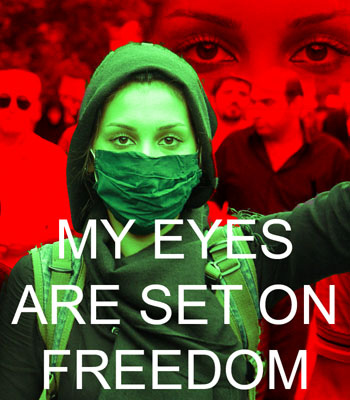During the lockdown, community led from the front in ensuring HIV treatment reaches people
SHOBHA SHUKLA – CNS
"HIV treatment and care could continue during COVID-19, thanks to intense community participation," said Daxa Patel, in an interview given to CNS. Daxa is Secretary General at Gujarat State Network of People living with HIV (GSNP+) and is former President of National Coalition of People Living with HIV (NCPI+) in India.
Former Head of Epidemiology at the Indian Council of Medical Research and a noted HIV expert, Dr Raman R Gangakhedkar, also echoed similar sentiments that during the COVID-19 lockdown, it was the people living with HIV who ensured that medicines reached them.
In an exclusive interview with CNS (Citizen News Service) Padamshree Dr Raman R Gangakhedkar shared: "The initial fear when the lockdown was announced (in March 2020) was that a large number of the nearly 1.6 million (16 lakh) people living with HIV who were receiving the lifesaving antiretroviral treatment, will not be able to adhere to treatment. Fortunately, at that time the community of people living with HIV took the lead to provide drugs to all those who might have otherwise stayed at home without treatment - either out of fear of acquiring COVID-19 infection if they went to antiretroviral therapy centres, or due to travel restrictions. The Government of India's National AIDS Control Organisation (NACO) also supported the community’s policy by allowing multi-month dispensing of antiretroviral therapy."
Community response to the challenges posed by COVID-19
Recalling the horror of those days (that continued for long) unleashed by the pandemic, Daxa said: "The lockdown was announced suddenly without any prior notice. Daily life was hampered for all, including the community of people living with HIV, creating many problems for them to access HIV care services - especially the daily wage earners, migrants from other states, and those who had not disclosed their HIV positive status to their families. But the community network members stood up to take on and overcome these challenges. Sensing that there might be a lockdown, we got in touch with NACO, State AIDS Control Societies, and local district authorities even before the lockdown was clamped. We collaborated and partnered with them to develop the multi-month dispensing protocol of antiretroviral therapy as well as drug dispensing refilling through the community members at the community centres and/or near the home of persons living with HIV. More than 50,000 community members in our region, connected with antiretroviral therapy medicines dispensing at the nearest place to their house or even at their doorstep. Even those taking medicines from the private sector faced similar challenges and we linked them with the government centres for accessing antiretroviral therapy without interruption. All this was achieved through the joint efforts by community members."
Both, Daxa and Dr Gangakhedkar, concede that while treatment disruption was minimal due to immediate community response in coordination with NACO and State AIDS Control Societies, other HIV-related services were affected. Testing for HIV went down dramatically because neither the people approached testing centres, nor the services could be provided as the entire health system’s priority was COVID-19 management. Targeted intervention programmes were also hampered as outreach could not be done. But thanks to community support and uninterrupted supplies ensured by NACO, there was high antiretroviral therapy coverage during the pandemic.
However, one issue that bothers Dr Gangakhedkar, and rightly so, is the economic impact of the pandemic that has pushed many more people below the poverty line. Some might have also resorted to risky behaviours, thus increasing their social vulnerabilities.
COVID-19 vaccination
COVID-19 vaccine gave hope to all of us, including the community of persons living with HIV. But there were a lot of misconceptions and myths around COVID-19 vaccines in the community - such as 'will it be harmful' or 'will it work for me'. Community sensitisation and counselling through webinars, mouth to mouth publicity and peer support helped a lot in dispelling the doubts and fear around the vaccine, said Daxa.
"One big problem was confidentiality. All vaccine recipients had to fill a form at the vaccination centres, in which they had to indicate if they had had any prior illness and/or if they were on any medication. I realised that this would pose a problem for those who did not want to reveal their positive status. So I told them that they were under no compulsion and it was entirely up to them to reveal their status while filling the database form, and that they could just put a cross against any prior illness, as there was no correlation between the vaccine and HIV infection. Also in my city (Surat), we started vaccination camps in our offices with the help of local authorities. And key populations like gay men and other men who have sex with men, transgender people, sex workers, etc came to these camps to get vaccinated," said Daxa.
Lessons learnt
Daxa lists three main lessons the pandemic has taught the community of people living with HIV: "It taught us the importance and use of technology to connect with the community members via social media and web-based platforms, as all face-to-face and onsite interactions had come to a stop. We learnt the importance of virtual meetings. Till then, I myself was not even aware of the word 'virtual.' But now I am able to facilitate webinars with ease. The second learning is about preparedness to deal with a calamity. Some alternative provisions, processes and policy decisions need to be in place as a part of the system. We are in dialogue with NACO about community-led drug refilling for disaster management. The third lesson is about using community as an asset to overcome challenges. We have seen stigma in our lives very closely. When we were diagnosed as HIV positive, when we started our medications we faced discrimination in society, in our families. But it made us stronger to face other challenges."
COVID-19 played a damper to a host of multiple strategies for HIV care and control that had been under consideration, including introduction of pre-exposure prophylaxis (PrEP), informed Dr Gangakhedkar. He is hopeful that with the pandemic easing out, we can now expect the implementation of PrEP in certain risk groups, as well as stigma-related interventions. Antiretroviral therapy dispensation guidelines are also likely to change for the better.
Daxa too wants that multi-month dispensing (for 2-3 months) done during the lockdown period should continue for those whose viral load is suppressed, who have no co-infection of TB or any other disease, and who are treatment literate and 95% adherent.
copyright mediaforfreedom.com


